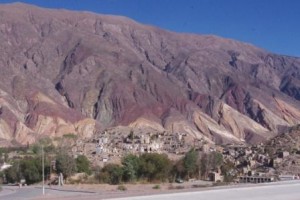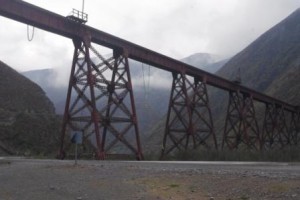
Its another early start and we have to vacate our rooms at the hotel, pack an overnight bag and store remaining luggage in one room. Just in case the Hotel gets guests. We have another feisty woman guide who tells us about the scandal of the Argentinean Railways how a corrupt President destroyed the industry and pocketed the proceeds. Sounds a bit like Beeching crossed with asset-stripping in the eighties.
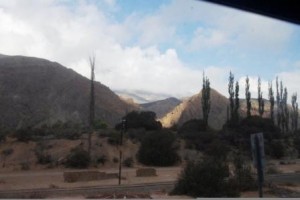
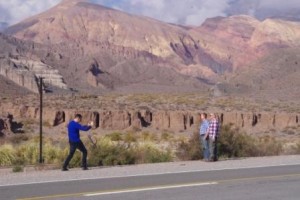
The result here is deserted narrow gage tracks and rusting bridges which would cost a fortune to restore. We travel onwards and upwards through these beautiful and colourful mountains, past random groups of unaccompanied children wearing brightly coloured clothing and munching empanadas in the middle of nowhere. We stop at a small settlement and look at a rambling museum created by its owner. Its full of dusty curiosities like old typewriters and a mummified body.
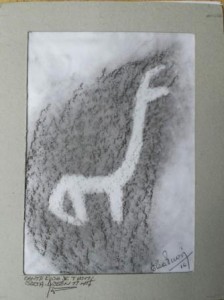
I buy some art a rubbing of ancient work depicting a Llama. Our lunch stop is at a small poor looking village where we are fed three courses beginning with soup. Llama is on the menu again still chewy.
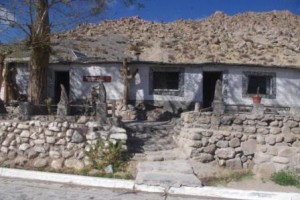
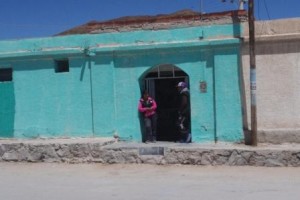
Andean houses are low and built of rocks but theres one which has been brightly painted and in the otherwise drab environment the townspeople dress in extravagant colours. Theres an ugly modern church next to a monument to historical figures unknown to us and there is very little traffic so that the employment of a traffic policeman on the main intersection is a mystery. He must get exhausted walking up and down with not much to do.
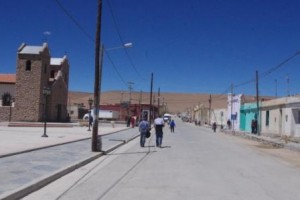
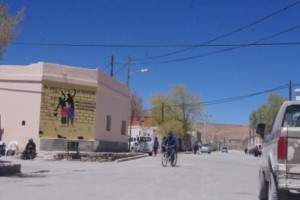
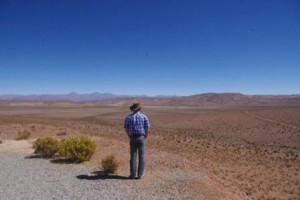
We travel ever upwards to a summit. Our guide has told us that altitude sickness is mostly psychosomatic, so we are quite disappointed to find that we are breathless and tired in this rarefied air. The colours of the landscape here, so much remind me of Death Valley in California and as we come to the salt lakes the comparison is confirmed. Everything here is larger, higher and extends to the horizon. Salt is mined from the lakes and snow-like mini mountains group around the place while canals created from the mining stretch into the distance already forming new crystals from the salt water.
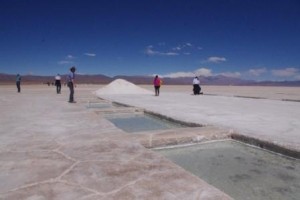
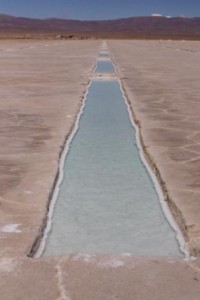
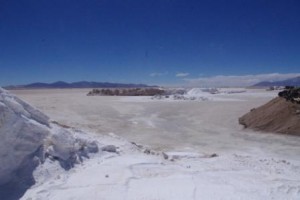
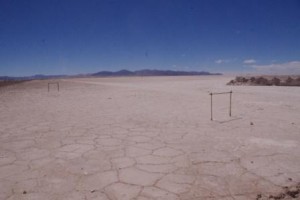
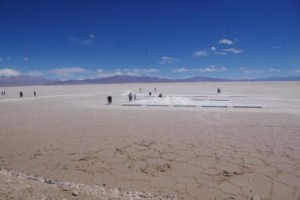
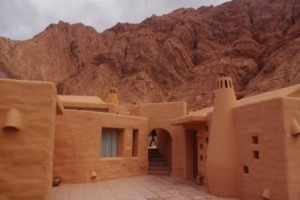
Its late afternoon by the time we descend to Purmamarca where we say goodbye to our Spanish-speaking travellers and settle into a most amazing adobe built hotel set against a vibrant red cliff face.
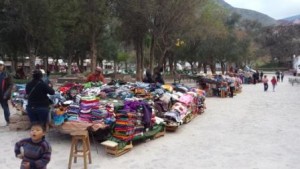
Down in the village plaza a fantastic fabric market is just winding down. The market used to be once a week, according to Richard, but I guess that tour buses come here every day so theres an incentive. Dr Mike has brought crisps to go with the wine I purchased in Cafayate it makes a good pre-dinner drink, especially the Cabernet Sauvignon.
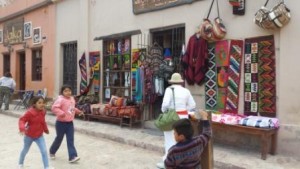
Weve become accustomed to the late eating habits of the Argentineans but the recommended restaurant is in full swing by the time we arrive. The Maitre D and waiters are in a panic with orders, wine glasses are brought to our table two at a time one in each hand and then half-way though, something else has to be done somewhere else in the restaurant.
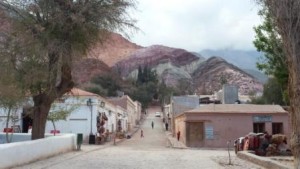
Its hilarious. Eventually the place empties and we are the focus of attention. Although the front-of-house staff dont quite know what they are doing, the chef behind the scenes, knows exactly what to do and the food is fantastic.
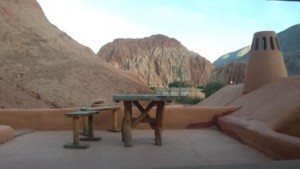
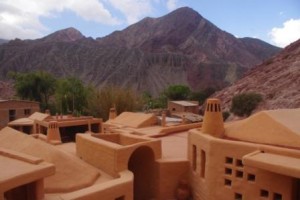
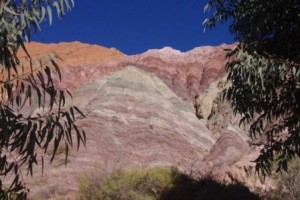
In the morning we have time for a walk over the coloured hills. On a ridge we find a young couple still in their sleeping bags, having stayed the night in the open. They are not expecting visitors, but we happily say good morning and carry on over the hill.
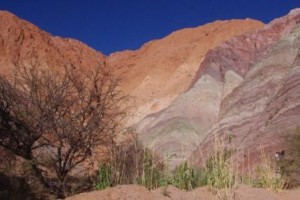
Were expecting to walk down to our bus-for-the-day, but instead we are met by Maria and Diego who have borrowed a smaller bus from another group and come up to collect us. Its all very dramatic and complicated as we transfer to our larger bus-for-the day to join a contingent of Argentinean families some with a small baby and four young French-speaking Belgians.
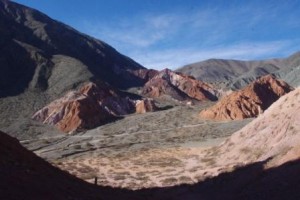
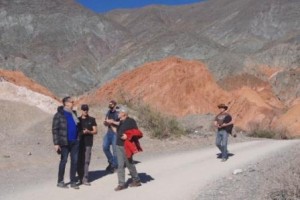
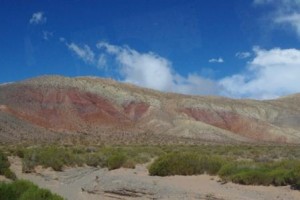
This group has come up from Salta this morning and together we see more coloured landscapes while Maria tells us about the Incas and how they were not very nice colonisers. This is around the extent of their empire so Maria details the evolution of societies and trade practices between groups. The Incas came in peacefully, in some respects.
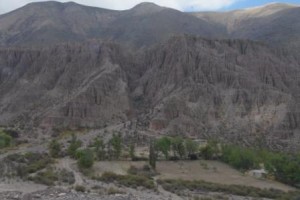
They offered things like protection and markets for goods in return for a whopping great percentage. Those who refused were left alone, but found their trade routes cut off and when desperate enough became subsumed into the empire with punitive rates. Sounds a bit like the East India Companys work expanding the British Empire, doesnt it?
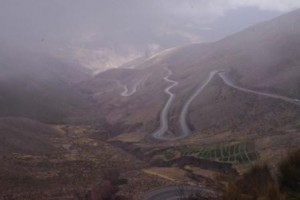
The Incas thought the arriving Conquistadores were Gods and when they found out that they were not, it was too late.
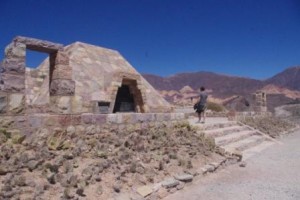
We are off to see Pucará de Tilcara, a pre-hispanic semi-fortified town on the Rio Grande. We have to ford this river in our bus so its not very deep. This archaeological restoration has re-built houses and important buildings while preserving the ubiquitous cacti which have taken over the site with dramatic effect. Some of these are hundreds of years old and are the only source of wood in this part. Rafters are made from them and gift shops sell all sorts of stuff, the most beautiful are a pair of lampshades.
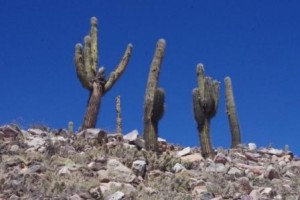
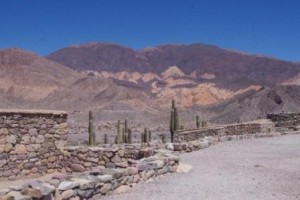
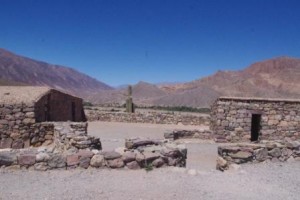
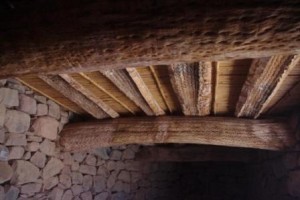

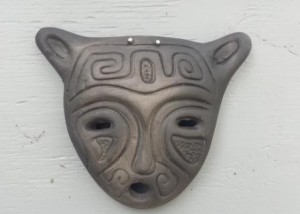
We have limited time here so its a bit of a rush as we have a retail opportunity in the form of a ceramics factory. Pots thrown on a wheel are demonstrated and we visit the kilns fired by imported wood. Finally theres the shop and I make a rare purchase of two identical faces which will sit on my garden shed.
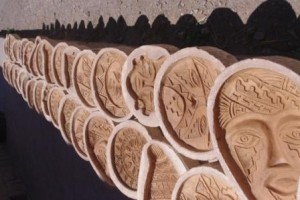
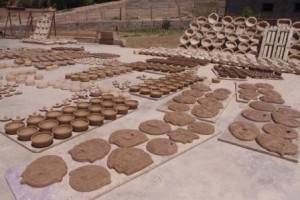
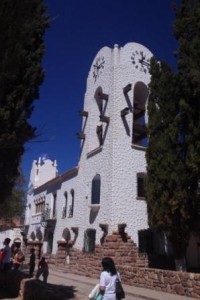
Once again we have an optional reservation at a village restaurant. We and the Belgians give this a miss and go exploring in the vibrant centre of town. We are after empanadas and beer for lunch and find just the place, deserted and friendly with ambience. The Empanadas are fabulous and theres still time to explore the Plaza and climb the steps up to a monument the altitude makes this quite an effort here. Apparently the locals have developed large lungs to compensate and as a consequence, have massive chests.
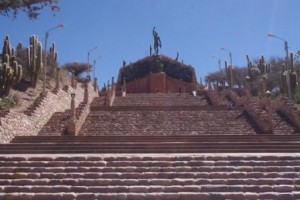
We are too late to see inside the Cathedral but theres a church which Maria wants us to see. High above on each side of the Nave are pictures of the angels beautifully painted by native artists. They asked the Spanish what angels should look like and were told they look like us. Result Conquistadores with wings and guns. Sadly, pictures are forbidden.
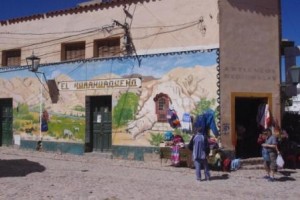
The rest of the day is taken up with a long drive back to Salta and our hotel where we return luggage to our rooms. Some of the group are not feeling well enough to come out for dinner, so its reduced numbers at a meat restaurant sourced by Robbie. We are shown to a large round table next to a huge group of elderly women celebrating a birthday with a cake and candles which reveals a firework. We have the attention of the most handsome waiter in the house, which blinds us to any imperfections although the meat is excellent.
